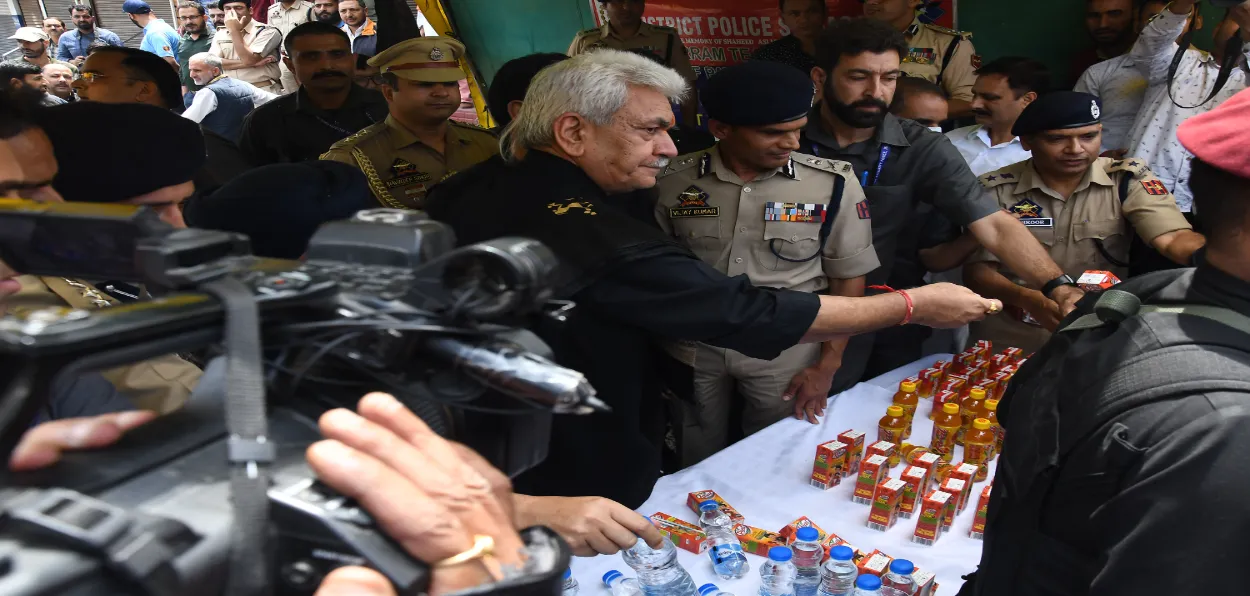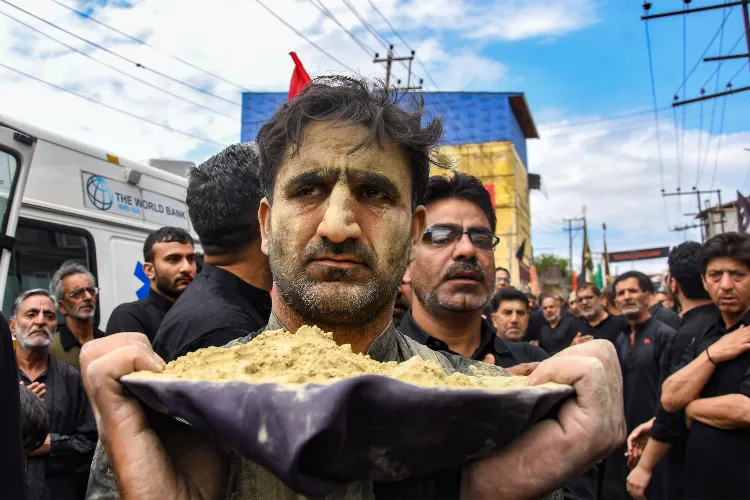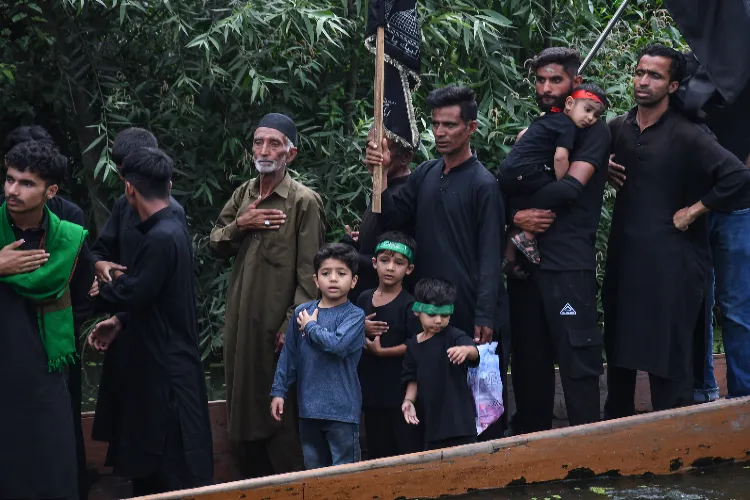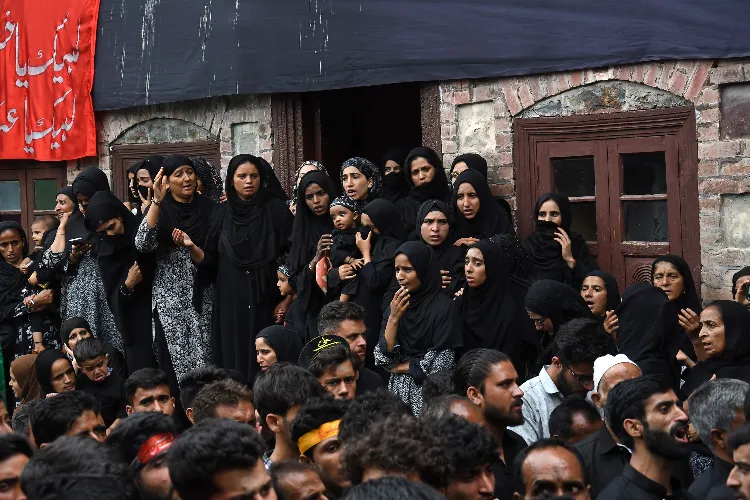
Ehsan Fazili/ Srinagar
Exactly 35 years after the then Chief Minister Farooq Abdullah’s peace gesture of joining the Muharram procession in Srinagar ended in a fiasco and invited restrictions on the Shias’ traditional mourning ritual in memory of Imam Hussain, the grandson of Prophet Muhammad, Lt Governor Manoj Sinha joined the Ashoora procession in Srinagar on Saturday, symbolizing the changed environment of the Valley.
Manoj Sinha flagged off the Zuljina procession from Bota Kadal on the city’s periphery to Zadibal, two days after the procession on the 8th day of Muharram was taken out peacefully on another traditional route - Guru Bazar to Dalgate through the city center’s M A Road.

A Shia Muslim mourner in Ashura procession
It was in August 1988, almost a year before Pakistan-backed armed insurgency surfaced in Kashmir that Farooq Abdullah – a Sunni Muslim - offered to lead the Ashura to show his support for Shias who form, 25 percent of Kashmir’s Muslim population. Abdullah had brushed aside the suggestions of the administration and Muslim leaders for an alternate route to avoid the usual clashes and tension.
Back in those days, though insurgency had not raised its head the ground situation was fragile after an unrelated incident of the death of Pakistan President Gen Zia-ul-Haq in a plane crash triggered violence.
In 1988, leaders of the Sunni and Shia communities decided to make sure the Muharram goes without violence and social tension. Prominent Shia leader Moulvi Iftikhar Ansari and some Sunni leaders met the Chief Secretary Moosa Raza.
.webp)
Shias taking out a mourning procession in Dal lake on 9th Muharram Srinagar
Moosa Raza wrote about it in his memoirs Kashmir: land of regrets. He wrote that leaders suggested a new route for the procession to avoid its passage through vulnerable areas. However, in his bravado, Abdullah rejected this idea and asked why should Shia people be made to compromise.
He also offered to lead the Ashura procession. Farooq Abdullah joined the procession and invited stone pelting. CM was somehow rescued from the situation but the incident led to the 1989 order of ban on Muharram procession in Srinagar and continued through the three decades of terrorism.
It is said that during the days of Monarchy, the Ashura procession was allowed only during the night to avoid “Shia-Sunni tensions”.

Shia mourners in 9th Muharram procession taken inside Dal lake on Friday
Traditionally Muharram processions were taken out from Namchibal to Zadibal in Srinagar, and later the Chief Minister, Sheikh Mohammad Abdullah proposed the route from Abi Guzar (in the central Lal Chowk area) through the old city to Zadibal.
Lt Governor Manoj Sinha in his recent message said that it was a “historic occasion for Shia brethren in Kashmir valley as after 34 years 8th Muharram procession is taking place on the traditional route, from Guru Bazar to Dalgate”.
“For 34 years, the Muharram procession was banned on the traditional route. We respect the sentiments of Shia brethren and I assure the community that the administration will always stand by them. It is also the testimony to change and normalcy in J&K UT,” the Lt Governor said.

Women mourners in the traditional procession on 9th Muharram
Meanwhile, the National Conference Vice President Omar Abdullah has welcomed the government's decision to allow Muharram procession on the traditional route.
He also asked the authorities to allow Friday prayers at Jamia Masjid and sought the release of Hurriyat leader Mirwaiz Umar Farooq from house arrest.
ALSO READ: Muharram or Shia genocide: Pakistan recreates Karbala for Shia Muslims
“We welcome this decision of allowing 8th Muharram procession but it should not be a stand-alone decision. We are now hopeful that the years-long incarceration of Kashmir’s prominent religious figure Mirwaiz Umar Farooq will also end so that he can perform his religious duty by leading the Friday prayers at Jamia Masjid, Srinagar. Allowing Eid prayers at Eidgah and holding commemorative functions at Mazar-e-Shuhada would also go a long way in restoring the confidence among the people,” Omar said.
